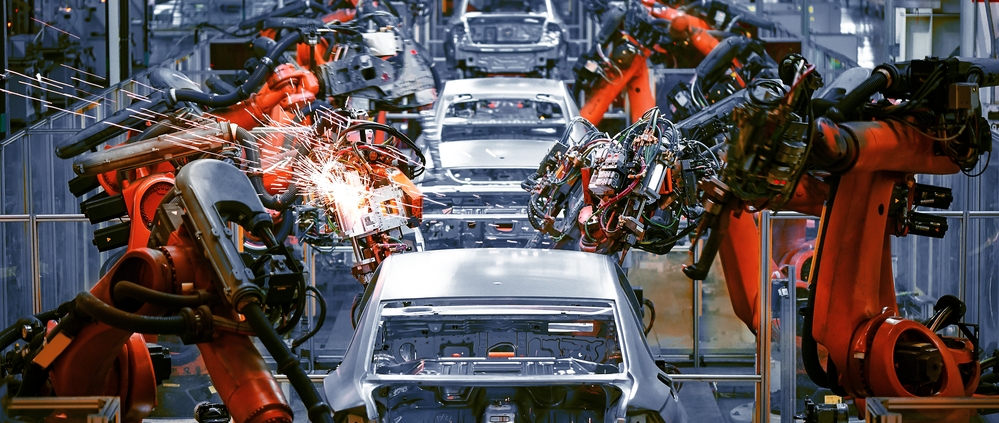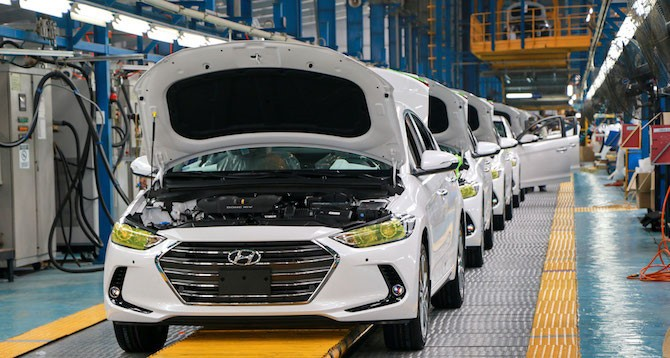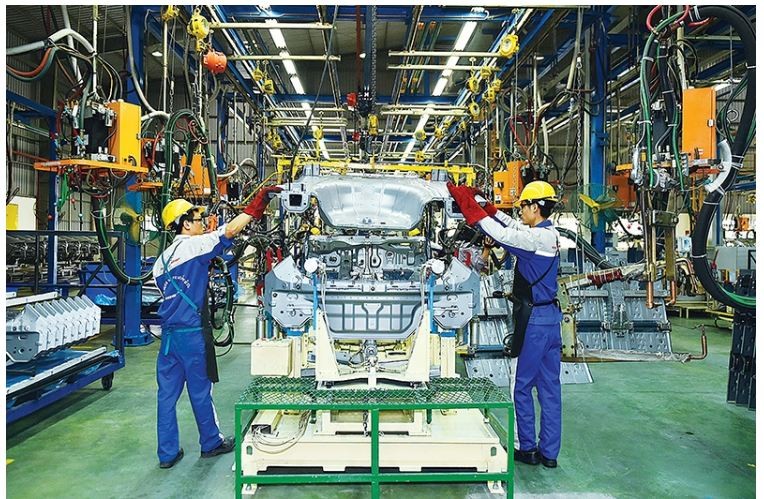Vietnam promotes automobile industry by changing tax & customs policies
| Global automotive yield may fall 20% due to Covid-19 | |
| Covid-19 causes the world automobile industry more than $100 billion damage | |
| DPRK representatives visit VinFast automobile manufacturing facility |
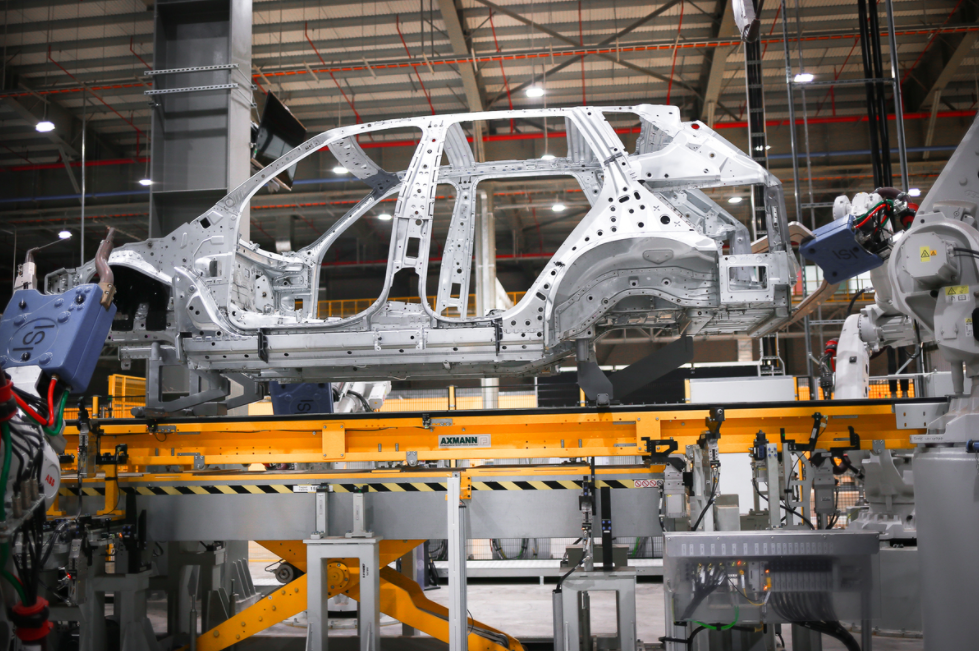 |
| A report from the Ministry of Industry and Trade (MOIT) found that automobile output in 2019 total of 281,606 products, much lower than the total capacity of 800,000 products. (Photo: VN Express) |
Aim to become ASEAN Top 3 industrial country
Resolution 23-NQ/TW dated March 23, 2018, of the Party Politburo sets the goal that Vietnam would complete the task of industrialization and modernization, basically becoming a modern industrial country, and included in the ASEAN top 3.
To reach the goal, the resolution pointed out that priority should be given to some mechanical industries such as automobile, agricultural machines, construction equipment, industrial equipment, electrical equipment, and medical equipment.
It is necessary to give support to develop suppliers in priority industries, which is the core of the policy on supporting industry development. As such, automobile and automobile supporting industries will be prioritized to develop from now to 2030.
Vietnam’s automobile industry is still very small. A report from the Ministry of Industry and Trade (MOIT) found that automobile output in 2019 total of 281,606 products, much lower than the total capacity of 800,000 products. The figure was small compared with Thailand (2 million cars a year) and Indonesia (1.2 million).
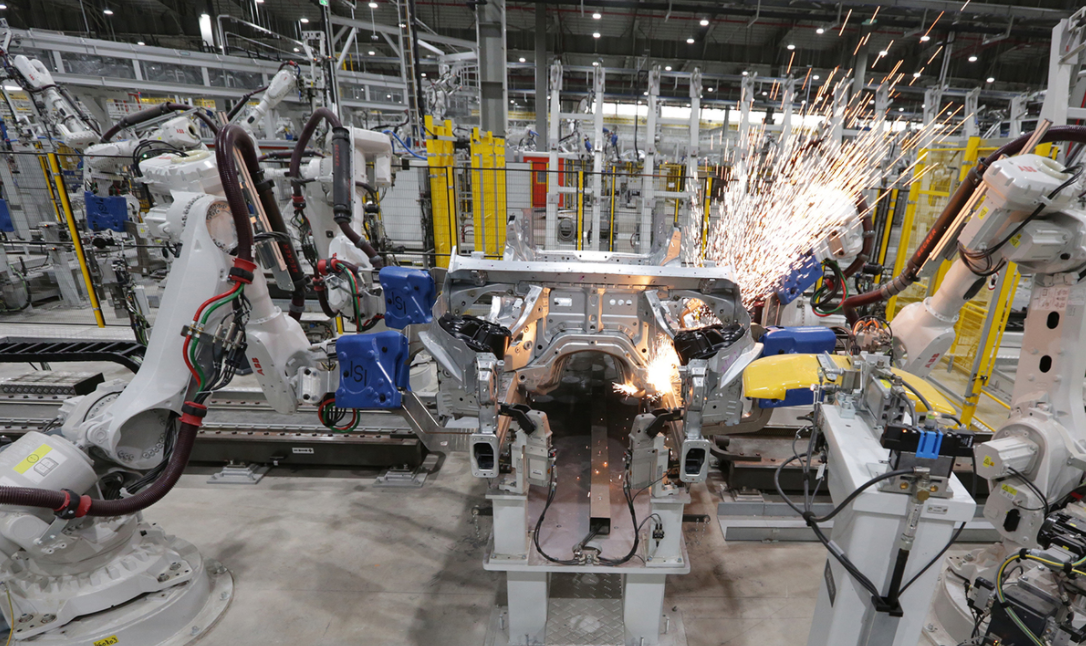 |
| Experts pointed out that in order to develop the automobile industry, it is necessary to develop supporting industries. But the supporting industries are weak in competitiveness. (Photo: VN Express) |
A need to expand supporting industries
Experts pointed out that in order to develop the automobile industry, it is necessary to develop supporting industries. But the supporting industries are weak in competitiveness.
A representative of Toyota Vietnam said at a seminar on the role of tax and customs policies in the automobile industry on November 3 that the manufacturer can buy a fuel tank cap at $1.5 per product, while a Vietnamese vendor offered the product at $3.8
Pham Van Tuan, general director of Eco Vietnam, also said that enterprises have import materials at high prices because of small orders. The expenses on materials account for 60-70 percent of production costs, said Vietnamnet.
The logistics cost in Vietnam is also high, accounting for 8-10 percent, while bank loan interest and other expense items account for 5-7 percent. Therefore, it is difficult to compete with imported car parts from Thailand which enjoy a preferential tariff of zero percent.
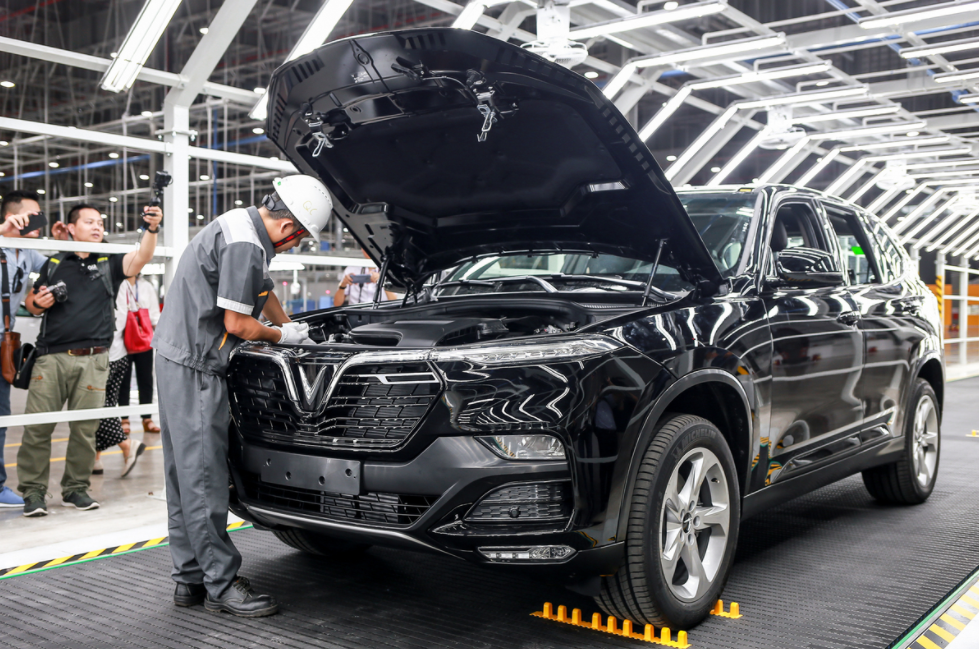 |
| To develop supporting industries, the automobile industry needs to have a large output. (Photo: VN Express) |
Proposal for changing tariff policies
To develop supporting industries, the automobile industry needs to have a large output. To encourage demand in the context of the people’s low incomes, it is necessary to slash taxes and fees, which helps reduce car prices.
Le Duong Quang, chair of the Vietnam Supporting Industries Association, said that tax policy is an important tool to develop the auto industry and supporting industries. Imposing high luxury taxes on cars will not encourage the consumption of cars.
According to the General Department of Customs (GDC), under the zero percent preferential import tariff program in accordance with Decree 125, 13 enterprises have met the requirements to receive the preferences of the program and have received tax refunds of VND9.5 trillion since late 2017.
Analysts said the zero percent preferential tariff on car part imports helps reduce expenses on car parts bought from non-ASEAN countries and the production cost of some domestically assembled models by 3-5 percent, thus allowing lower selling prices.
If the state continues reducing taxes and fees, this would help increase car output and help develop the automobile and supporting industries, which would lead to higher state budget collections, according to Vietnamnet's Tran Thuy.
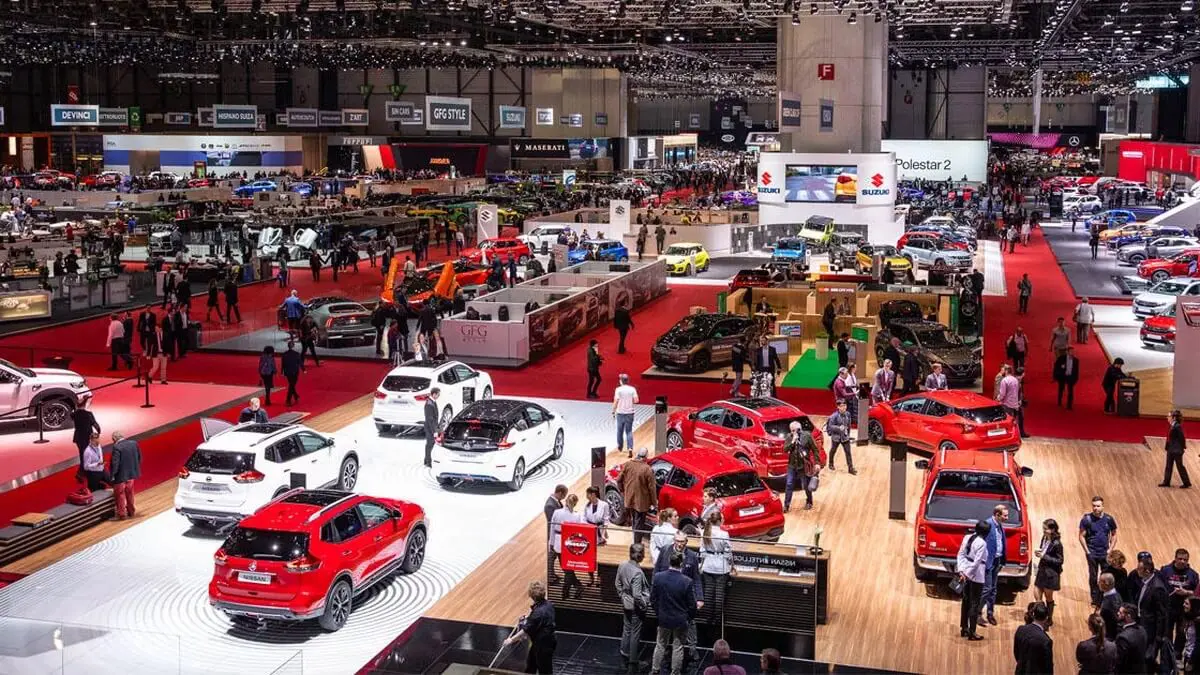 | Vietnam's biggest auto show canceled due to COVID-19 The 2020 Vietnam Motor Show (VMS) has been cancelled due to the complex developments of the COVID-19 pandemic. |
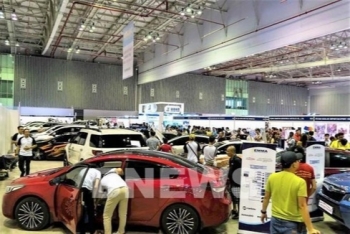 | Vietnam automobile sales surged 62% in May after social distancing According to the data from the Vietnam Automobile Manufacturers’ Association (VAMA), Vietnam automobile sales surged 62% month-on-month in May following the end of social distancing ... |
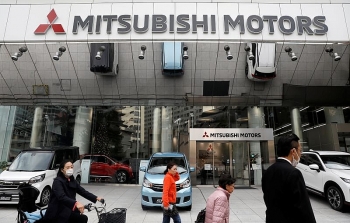 | Mitsubishi plans to develop second automobile factory in Binh Dinh province Mitsubishi Motors Corporation has intention to build an automobile manufacturing plant in Binh Dinh province, marking its second manufacturing facility in Vietnam. |

